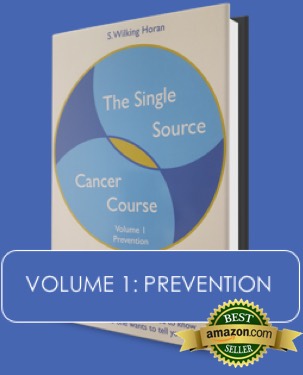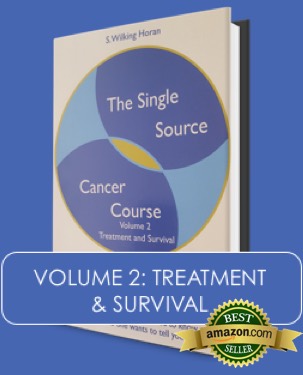IT’S MOVEMBER!
A GREAT TIME TO DISCUSS PROSTATE CANCER:
FIVE BASIC RISK FACTORS AND FIVE IMPORTANT SYMPTOMS EVERY MAN NEEDS TO KNOW!
“I mustache you a question, but I’ll shave it for later.”
Hi everyone! I’m so happy to have you back again for another Health and #WELLNESS WEDNESDAY — and SO HAPPY to have our BETTY and PUDGY visiting me again from Fleischer Studios to help me deliver this week’s important message! And by the way, hubby Mark Fleischer the President and CEO of Fleischer Studios is ALSO with us today — because the cancer we’re going to discuss this week has affected him personally.
And, of course, let’s not forget that it’s MOVEMBER! And no, that’s not a typo. You see, Movember is a literary marriage of the word “mustache” and the month November. It’s a term that was coined to raise awareness of all the cancers that affect men. So, our discussion today will focus on the men in our audience and the men in our lives!
To begin, THE MOVEMBER FOUNDATION was founded in 1999 by a group of young men in Adelaide, South Australia. It’s a charitable organization whose members urge men everywhere to grow mustaches throughout the month of November. The goal is to bring new awareness to not only the cancers affecting men, but to the charities associated with them as well. Referring to one another as “Mo Bros” the members of this organization encourage each other to adopt healthier lifestyles, research their family medical histories and to undergo regular annual check-ups.
So, let’s do our part to raise awareness of men’s cancers by discussing the second most commonly diagnosed cancer among men the world over — and the MOST COMMONLY DIAGNOSED cancer among men in this country — prostate cancer. It is a disease that typically strikes at an average age of seventy-two and will affect one out of every seven men in the United States at some point in their lifetime.
Accordingly, it’s time to get down to facts by listing the FIVE BASIC RISK FACTORS associated with prostate cancer of which every man needs to be aware:
1) FAMILY MEDICAL HISTORY: Just as we discussed with breast cancer for women last month, we can’t emphasize enough the importance of heredity and its link to prostate cancer. Men who have a First Degree Relative (FDR) which includes fathers, sons and brothers who were diagnosed with prostate cancer before the age of sixty are twice as likely to develop the disease than other men. ALSO, men who have women FDRs — including mothers, sisters and daughters — who have an anomaly of the BRCA 1 and 2 genes may also have a genetic anomaly of the BRCA 2 gene themselves AND, therefore, an increased risk for developing prostate cancer.
2) RACE AND NATIONALITY: Black men the world over share a greater risk for developing prostate cancer than their Caucasian counterparts. In contrast, Asian and Hispanic men share the lowest risk for developing prostate cancer. Men who live in North America, northwestern Europe and Australia have a greater risk for developing the disease than men who live in Asia, Central America, South America and Africa. As a result, the highest rates for prostate cancer are found among African American men and the lowest rates are found among Asian men.
3) MEDICAL CONDITIONS: Benign medical conditions of the prostate such as hyperplasia and prostatitis have been linked to the development of prostate cancer.
4) AGE: Most cancers are considered diseases of aging. In other words, the older we get, the more likely we are to develop some form of cancer. This theory basically holds true unless a cancer is genetically influenced and runs in one’s family. But typically, more than sixty-five percent of all prostate cancers are diagnosed in men over the age of sixty-five. And, of course, as men age their risk for the disease increases.
5) LIFESTYLE: Once again, our lifestyle choices can greatly increase or decrease our risk for many cancers. In the case of prostate cancer, poor diets high in fat and low in fiber and nutrition will increase one’s risk. Inadequate exercise will increase one’s risk. And, tobacco use will increase one’s risk. The good news here, however, is that these risk factors are within one’s control and can be eliminated or modified.
So, now that we have an understanding of the five basic risk factors for prostate cancer, let’s discuss the FIVE IMPORTANT SYMPTOMS associated with the disease.
1) Blood in the semen or urine;
2) Urinary issues, including frequency or urgency — OR — slow flow or hesitancy;
3) Painful ejaculation;
4) Reduced ability to achieve an erection, and;
5) Numbness or pain in the hips, legs or feet.
There we have it everyone. Important information every man — and every woman for the man in her life — needs to know.
Now, most of you know I have survived three different cancers. And, I’m always proactively monitoring my health. What you may not know is that hubby Mark has had two first degree relatives who were diagnosed with and treated for prostate cancer. This indicates that for him the disease is a hereditary risk factor. As a result, Mark remains very proactive as well. He has made sure his physician is aware of his family medical history. He has regularly scheduled checkups based upon his level of personal risk. He undergoes the recommended screening procedures for prostate cancer, including the Digital Rectal Exam or DRE AND the Prostate-Specific Antigen Blood Test or PSA. In this way, even if the disease can’t be completely prevented, Mark’s proactive approach will allow him to catch the cancer early if it does develop — and treat it successfully!
Remember, prostate cancer is common and it’s serious. BUT, most men diagnosed with the disease recover and survive — and continue to live fulfilling and productive lives. Early detection is the Key to Successful Treatment! Don’t be afraid — be informed! And, don’t be surprised — be prepared!
On behalf of Betty, Pudgy, Mark and me coming to you from Fleischer Studios today — many thanks to everyone for taking part in this week’s important message. We wish you all a HAPPILY MUSTACHED AND HEALTHY MOVEMBER!
Until next time everyone,
TAKE THE COURSE AND TAKE CHARGE!




Leave a Comment